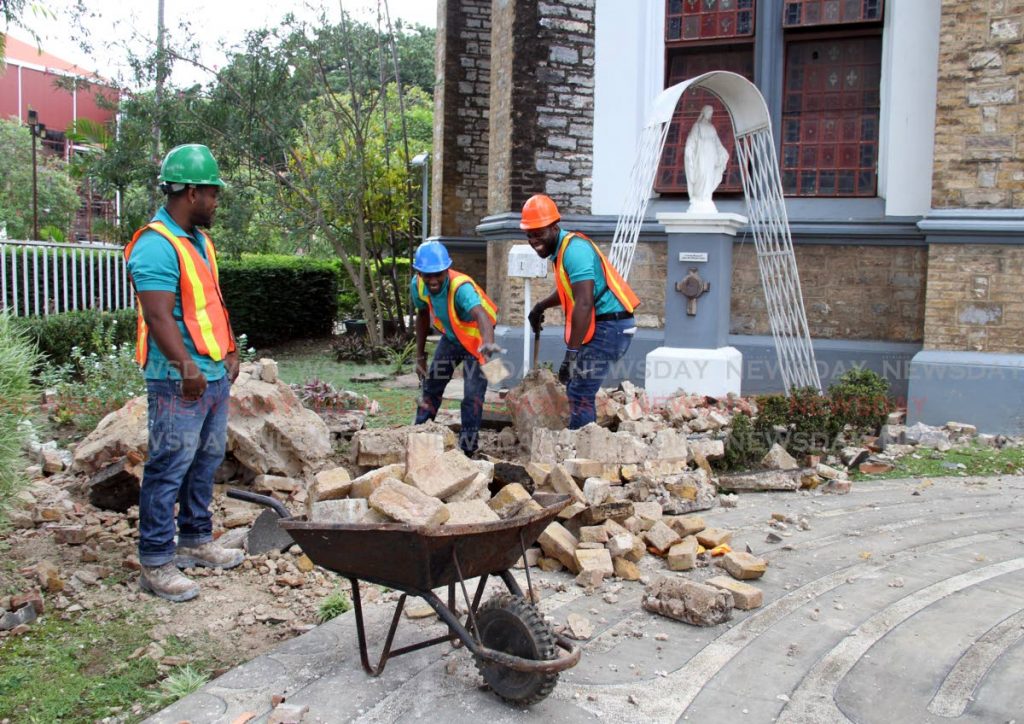Expert calls for trauma plan

Counselling psychologist Anna Maria Mora is urging governments to develop holistic approaches - comprising various agencies - to assist people who experience extreme trauma due to natural disasters.
Commenting on the 6.9 magnitude earthquake which rocked TT on Tuesday and caused many people to be hospitalised because of panic attacks and heart-related ailments, Mora said the strategy should be implemented directly in areas where the disasters occur.
“To help people in situations like those, there most be a concerted effort on the part of the government to provide the safe environment for its citizens.”
Mora said while there may be first and second responders by way of members of the security services and relief workers to assist people after disasters, many would also require intense medical attention. She said if properly set up, people should be able to access services within their communities as opposed to going to overwhelmed medical facilities.
Insisting the “God is a Trini” mentality must be dispensed with, Mora said people must be prepared for any eventuality.
“It is not a question that we are a Carnival mentality and we like to fete and party for everything because when it is life-threatening, that is when we become really very stressed.” Mora said based on the response of many people to the earthquake, it did not appear ss though it was life-threatening.

“This was not severe. It was not as severe as a 7.0 or 8. So you found that people on WhatsApp were making jokes about Dr Keith Rowley (prime minister) and shaking up the place.”
She added: “They talk about this being a wake up call. It is not the wake up. It is not the jumping up from sleep. It might just be the alarm bell going off. The wake up is when the bed mash up and we fall off the bed. Then they realise this thing is not a joke.”
Told that some bars along Ariapita Avenue, Woodbrook, were teeming with activity and offering aftershock drinks on Tuesday, Mora wondered if the activity persisted in the ensuing days.
“If this continued, then it again meant the event was not as traumatic as we feel it was for many of us.”
Mora said while some people may have resorted to liming as a coping mechanism to deal with the effects of the earthquake, those who do not have a built-in strategy and lose control through panic attacks, were not strong psychologically.
The psychologist defined trauma as stress on the self that occurs when something is severe and unpredictable. If the person is vulnerable, then that person does not have or has limited psychological capacity to handle what happened. So, the stronger the person is psychologically, the less trauma these unpredictable events would have.”
She added: “One of the things about trauma and what happens to us is that if we have the information, when trauma happens we are going to feel that our reality as we knew it has changed. Reality for us will no longer be the same.
“We must understand that and once we know that if something happens to cause severe stress and we react to it, we will understand that this is what happens when severe stress takes place. We wouldn’t feel that we are going mad and losing control and lost.”
Mora said a strong support network of family and friends also helps to cope with trauma.
“But, if our support systems are compromised, like home, community, we are going to feel alone. We are going to feel there is no way we can come out of this by ourselves because we need support.”
Mora said as far as possible, people should practice what she called self-soothing - the ability to understand that something is affecting them.
“If I am not breathing properly, then I need to take deep breaths to get the oxygen where it needs to go to help me feel better.”
She explained: “When people are in deep trauma, they tend to breathe shallowly
and that is where the panic attacks come in.
“So, the oxygen that helps to soothe and feed the brain, the good feeling will not get to where it is supposed to be and we are going to keep hyperventilating. And that is why we are told in times of trauma to breathe deeply.”


Comments
"Expert calls for trauma plan"